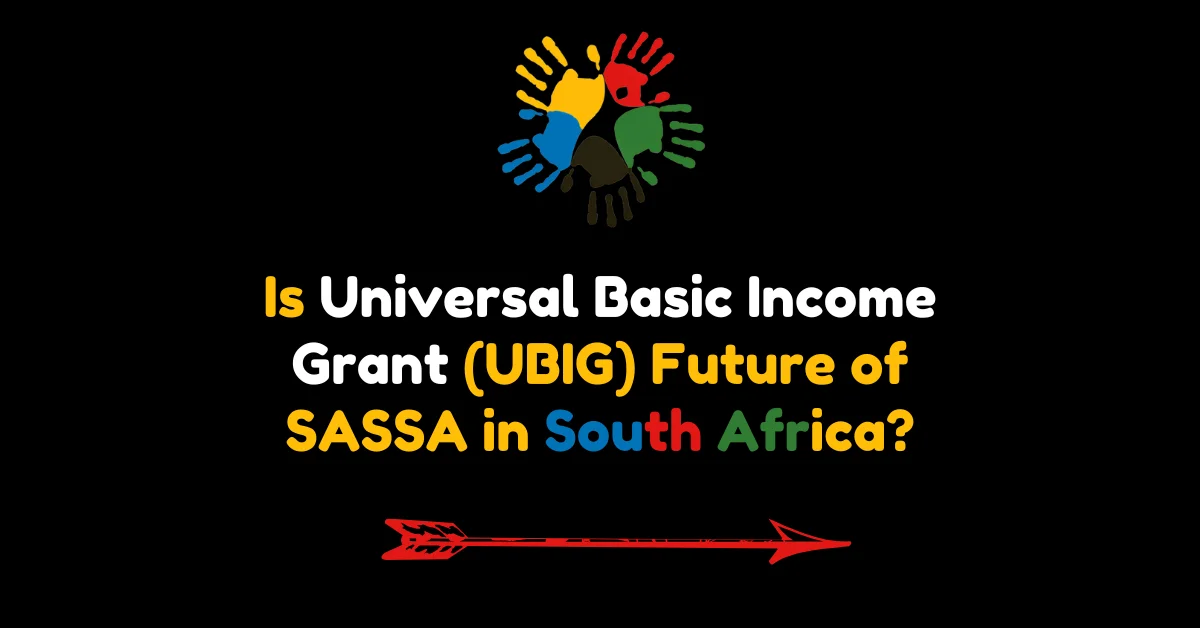Have you ever wondered if a single policy could reshape poverty alleviation in South Africa? With inequality and unemployment at alarming levels, the Universal Basic Income Grant (UBIG) is sparking heated debates.
Could this idea redefine the South African Social Security Agency’s (SASSA) approach to welfare? Let’s explore whether UBIG might be the future of SASSA.
How Universal Basic Income Grant (UBIG) Could Shape SASSA’s Future?
The Universal Basic Income Grant (UBIG) could revolutionize SASSA by providing unconditional financial support to all citizens, reducing poverty and inequality. While it offers economic security and simplifies administration, challenges include high costs and inflation risks. UBIG’s feasibility depends on robust funding, stakeholder collaboration, and phased implementation, making it a pivotal consideration for South Africa’s welfare future.
What is Universal Basic Income Grant (UBIG)?
Universal Basic Income Grant (UBIG) is a system designed to provide regular, unconditional cash payments to all citizens, regardless of their financial situation or employment status.
Unlike targeted social grants that require specific eligibility criteria, UBIG aims to simplify the process, offering a consistent safety net for everyone. Proponents argue that this approach could ensure financial stability and significantly reduce poverty.
Current SASSA System and Its Limitations
SASSA currently administers various social grants targeting specific groups, such as the elderly, children, and those with disabilities. While these programs have positively impacted millions of lives, they often face challenges like:
- Administrative inefficiency: Long processing times and bureaucratic hurdles.
- Exclusion errors: Eligible individuals missing out due to a lack of awareness or complicated procedures.
- Targeted limitations: Benefits are tied to specific conditions, leaving others in need without assistance.
These issues highlight the need for a more inclusive and streamlined approach, which UBIG could potentially offer.
Arguments in Favor of UBIG
1. Reducing Poverty and Inequality
A UBIG system ensures that everyone, regardless of income or employment status, has access to financial resources. Studies suggest that even small, consistent payments can drastically improve the quality of life for marginalized communities.
2. Economic Stimulus
Unconditional cash grants could increase consumer spending, boosting local businesses and driving economic growth. A more financially secure population often means higher demand for goods and services, creating a positive ripple effect in the economy.
3. Simplicity and Efficiency
By replacing multiple targeted grants with a single UBIG, administrative costs and complexities could be reduced. This streamlined approach could eliminate fraud and ensure funds reach the intended recipients promptly.
4. Encouraging Innovation and Freedom
With basic financial security assured, individuals might feel freer to pursue education, entrepreneurial ventures, or other opportunities without the fear of losing their livelihood.
Arguments Against UBIG
1. High Implementation Costs
Critics argue that UBIG could place an unsustainable burden on South Africa’s already strained budget. Estimates suggest that funding a UBIG program would require significant tax increases or reallocating resources from other essential services.
2. Disincentive to Work
Opponents claim that guaranteed income might discourage people from seeking employment, potentially reducing workforce participation and productivity.
3. Inflation Risks
An increase in disposable income could lead to higher demand for goods and services, driving prices up. If not managed carefully, this could erode the real value of UBIG payments.
4. Taxpayer Fairness
Many believe UBIG might be perceived as unfair by taxpayers who feel their contributions are supporting individuals who may not contribute to society in return.
The Feasibility of UBIG in South Africa
For UBIG to succeed, South Africa would need to address several critical factors:
- Economic Viability: Determining how to fund UBIG without crippling the economy.
- Targeted Pilots: Implementing pilot programs in specific regions or demographics to assess feasibility and impact.
- Collaboration and Transparency: Engaging stakeholders, including economists, policymakers, and the public, to build a consensus.
A phased approach could allow the government to gradually expand UBIG while monitoring its effects on employment, poverty, and economic stability.
Case Studies: UBIG in Action
1. Alaska (USA)
Alaska’s Permanent Fund Dividend provides annual payments to residents from oil revenues. This program has shown positive results in reducing poverty without significantly impacting employment rates.
2. Finland
Finland conducted a pilot program offering UBIG to a small group of unemployed citizens. The results revealed improved well-being and reduced stress, although employment rates remained relatively unchanged.
These examples illustrate the potential benefits and challenges of implementing UBIG in diverse settings.
What Could UBIG Mean for SASSA?
If South Africa adopts UBIG, it could transform SASSA’s role from managing multiple grants to overseeing a unified system. This shift might lead to:
- Enhanced Accessibility: Reaching more citizens with fewer bureaucratic barriers.
- Improved Public Perception: Addressing criticisms of inefficiency and exclusion.
- Long-Term Economic Benefits: Creating a more equitable society with reduced poverty and inequality.
However, these outcomes hinge on careful planning, robust funding mechanisms, and ongoing evaluation.

